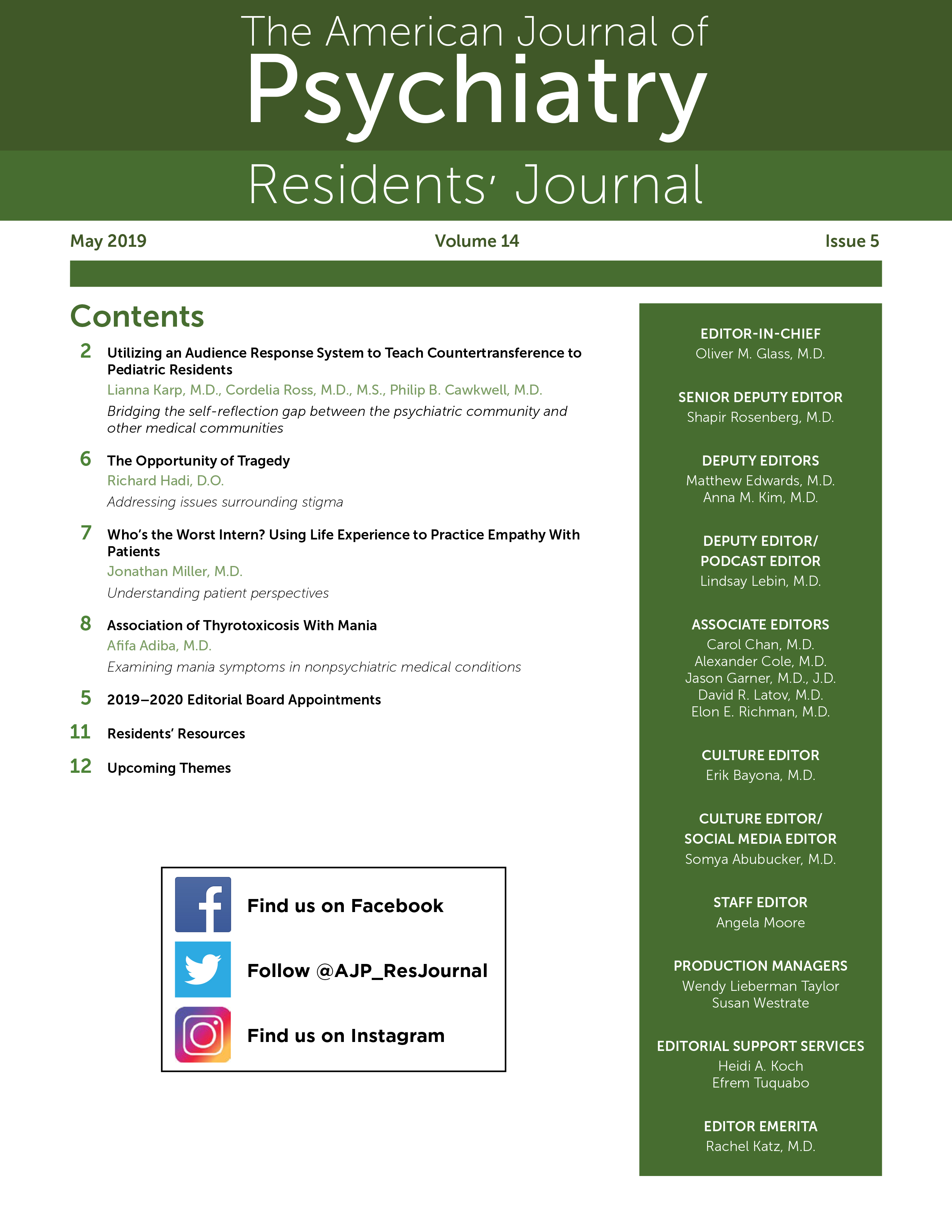We are now 9 months into the intern year, and everyone wants to know who's the worst intern? Spoiler alert. I am. Well, at least that's the opinion of one of my attendings. I can't blame him. It was an awful 5-day rotation that culminated with my supervisor delivering this heartbreaking statement, "You're falling behind your peers."
At this moment, I felt that I was at my absolute worst. But it made me think, How many of my patients come in to see me at their absolute worst? At a time when they too are their most dysfunctional.
I consider myself lucky. For me, this rotation wasn't my first time feeling at my worst. As a medical student from a minority group, I had a tenuous path into the field of psychiatry. People have mistaken me for hospital kitchen or cleaning staff. Once, while leaving the hospital, I was mistaken for a criminal and arrested and jailed. I've endured thousands of patient comments regarding my race. I've felt at my worst plenty of times.
My patients often aren't so lucky. For some, this is the first time they have ever been singled out for "bad genetics" or the first time they have been deemed unfit, simply because they were having a bad day, a bad week, or a bad few months.
I recall sharing my experiences with several of my mentors. They suggested some great books to read. One that comes to mind is Black Man in a White Coat, by Damon Tweedy. I was told that this book is about a person just like me who is navigating similar adversities. I was told it would give me further insight into "my situation." I never read it. When I think back to this time, I realize that I hadn't wanted further insight. I simply wanted someone to listen.
We too tell our patients that we have a great book called DSM. We tell them, "It's a book that is full of people like [them] who are going through similar things as [them]." Then we print out handouts to help them gain insight into "their situation." The DSM and Black Man in a White Coat are both great resources, but without attentive listening, they are ineffective tools. Intellectualization isn't a universal defense mechanism, but following the Maslow model, empathy and belonging are crucial to reaching self-actualization.
I don't know what it feels like to have a mental disorder, but I do know what it feels like to be treated differently based on genetics. I know what it feels like to be incarcerated. And, most importantly, I know what it feels like to be at my absolute worst. I imagine that my needs and those of my patients are similar in these instances. When I'm at my worst, empathy is what I find most helpful—a reminder of my personal value, that the person I am today is not the person I will always be. I think my patients would agree.
